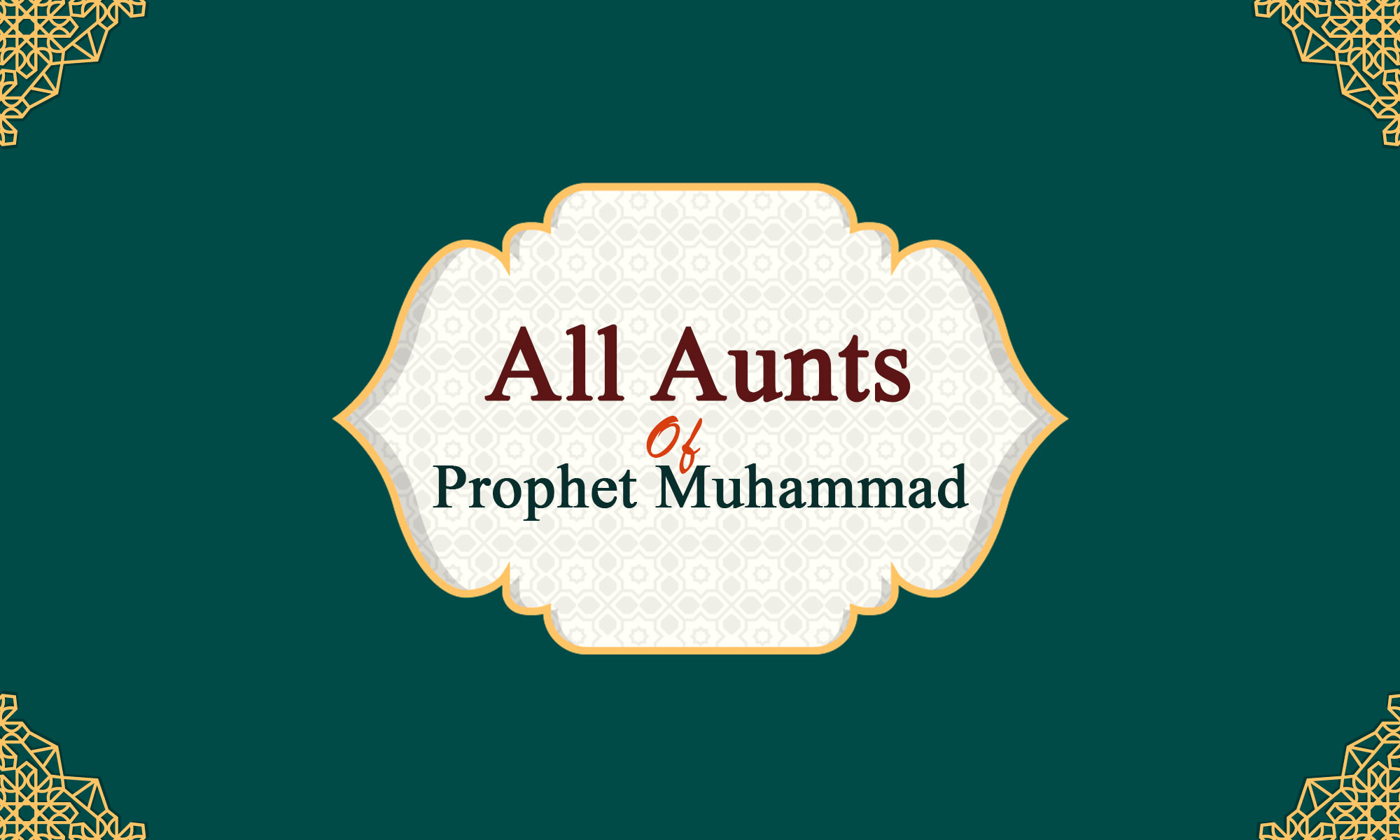List of Paternal Prophet Muhammad Aunts with Their Names

How Many Aunts of the Prophet Muhammad?
The paternal aunts of Prophet Muhammad hold unique places in Islamic history. The Prophet Muhammad had exactly six paternal aunts: Atika, Umm Hakim, Safiyya, Arwa, Barra, and Umayma. This article explores the lives, contributions, and inspiring stories of these six women.
Safiyya bint Abd al-Muttalib
Safiyya bint Abd al-Muttalib ibn Hashim ibn Qusay al-Qurashiyya was the daughter of Hala bint Wuhayb from the tribe of Banu Zuhra. She was the full sister of Hamza ibn Abd al-Muttalib, the Prophet’s uncle. Safiyya married al-Awwam ibn Khuwaylid, and they had sons named al-Zubayr, al-Sa’ib, and Abd al-Kaaba. She embraced Islam, gave allegiance to the Prophet, and migrated with the Muslims to Medina. Safiyya was also known as the mother of the prominent companion al-Zubayr ibn al-Awwam.
Islamic history mentions stories of heroism involving female companions, including Safiyya. During the battle against Banu Qurayza, the Muslim women and children were sheltered in a fortress. Safiyya noticed a Jewish man scouting around the fortress, and fearing he might harm them, she asked Hassan ibn Thabit to confront him. When Hassan hesitated out of fear, Safiyya took matters into her own hands, grabbed a pole, went out of the fortress, and struck the man until he died.
Arwa bint Abd al-Muttalib
Arwa bint Abd al-Muttalib was the daughter of Safiyya bint Jundub. She was the full sister of al-Harith ibn Abd al-Muttalib. Arwa married Umayr ibn Wahb, and they had a son named Tulayb, who was among the earliest converts to Islam at Dar al-Arqam.
Historians differ regarding Arwa’s conversion to Islam, though it is said she accepted Islam through her son Tulayb and strongly encouraged others to follow and support the Prophet. After Umayr's death, she married Kulda ibn Abd Manaf.
Atika bint Abd al-Muttalib
Atika bint Abd al-Muttalib, one of the Prophet's aunts, was known as a poet. Historical sources mention that she accompanied the pagans during the Battle of Badr from Mecca. Ibn Sa'd reported that Atika converted to Islam in Mecca and migrated to Medina. She had three children: Abdullah, Zuhayr, and Qurayba al-Kubra. One day, Atika saw a distressing dream predicting conflict between the Prophet and Quraysh.
She narrated the dream privately to her brother al-Abbas, urging him not to reveal it to anyone. However, al-Abbas told his friend al-Walid ibn Utba, who then passed it to his father, and the news spread in Mecca. Abu Jahl, Abu Lahab, and others mocked and dismissed the vision. Yet within three days, Atika's vision became reality when Quraysh faced defeat in the Battle of Badr.
Umm Hakim bint Abd al-Muttalib
Umm Hakim bint Abd al-Muttalib, nicknamed "al-Baydaa," did not witness the Prophet’s mission according to the historian al-Dhahabi. She first married Kurayz al-Abshami and bore him Amir and Arwa, then married Uqba ibn Abi Mu'ayt, having three children: al-Walid, Khalid, and Umm Kulthum. She was the full sister of Abdullah (the Prophet’s father), Abu Talib, and al-Zubayr.
Barra bint Abd al-Muttalib
Barra bint Abd al-Muttalib was the daughter of Fatima bint Amr al-Makhzumiyya. She married Abd al-Asad al-Makhzumi and bore him Abu Salama. Later, she married Abu Ruhm ibn Abd al-Uzza ibn Lu'ayy and had a son named Abu Sabra, who migrated to Medina and fought in the Battle of Badr.
Umayma bint Abd al-Muttalib
Umayma bint Abd al-Muttalib was the full sister of Barra, her mother being Fatima bint Amr al-Makhzumiyya. She married Jahsh ibn Ri'ab al-Asadi and bore him Zaynab bint Jahsh, who later married Prophet Muhammad.
She also had children named Abdullah ibn Jahsh, who was martyred in the Battle of Uhud, Hamna, Habiba, and Abd ibn Jahsh, all of whom were companions. Another son, Ubaydullah ibn Jahsh, initially embraced Islam and migrated to Abyssinia but later converted to Christianity there.
The Prophet’s paternal aunts played significant roles in early Islamic history, showcasing courage, faith, and devotion that continue to inspire Muslims today.